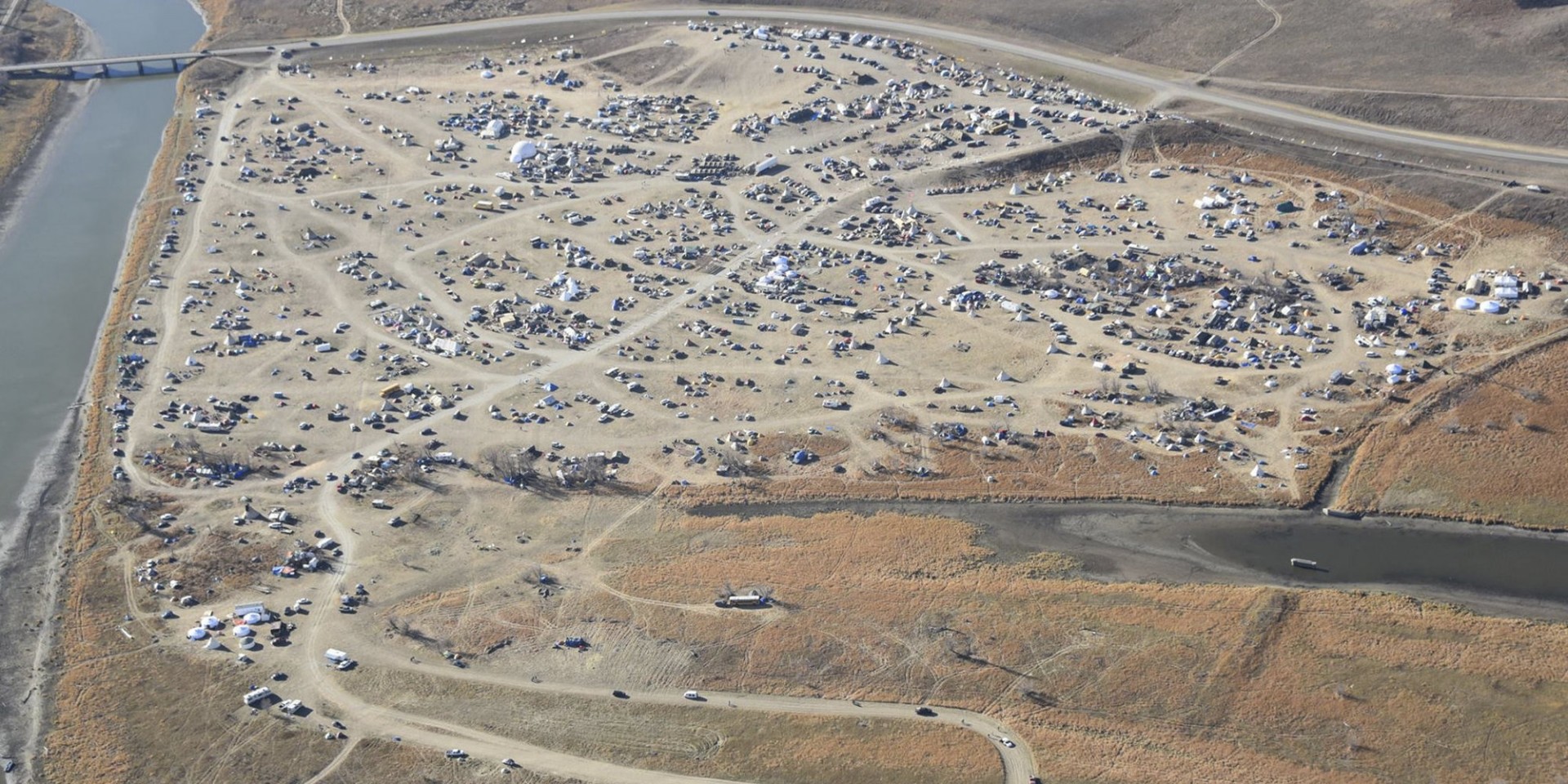Feds Plan To Shut Down Dakota Access Pipeline Protest Camp

The federal government on Friday revealed plans to shut the largest camp in North Dakota where protesters have gathered for months in opposition to the Dakota Access Pipeline.
The U.S. Army Corps of Engineers said in a letter to a Native American tribe leading the opposition against the pipeline that it will close the area on Dec. 5, after a series of clashes between law enforcement and protesters.
“This decision is necessary to protect the general public from the violent confrontations between protestors and law enforcement officials that have occurred in this area, and to prevent death, illness, or serious injury to inhabitants of encampments due to the harsh North Dakota winter conditions,” Col. John Henderson said in a letter to tribal chairman Dave Archambault. “The necessary emergency, medical, and fire response services, law enforcement, or sustainable facilities to protect people from these conditions on this property cannot be provided.”
The protesters’ presence also interferes with the commercial activities of private individuals who have grazing and haying rights on the land, Henderson wrote.
Anyone staying in the area after the deadline may be subject to prosecution, Henderson warned in the letter. He added that an alternate “free speech zone” for protesters is in place on the other side of the Cannonball River. Police, firefighters and medical professionals can more easily access that area.
The Morton County Sheriff’s Department has arrested more than 500 protesters and alleged that its officers were endangered by activists throwing debris and starting fires. Protesters, meanwhile, claim they’ve been injured by tear gas, rubber bullets, water hoses and other so-called non-lethal weapons used by police.
One woman may have an arm amputated after witnesses said she was hit with a percussion grenade thrown by police during protests Sunday night. Police deny using such a weapon and suggested that other protesters wounded the woman with homemade explosives.
An encampment of Standing Rock Sioux and their allies, sometimes numbering in the thousands, has occupied the area north of the Cannonball River for months. The Sioux fear the 1,172-mile pipeline could contaminate the drinking water for their nearby reservation and argue that granting a permit to developer Energy Transfer Partners to build beneath Lake Oahe would violate an 1851 treaty.
Archambault expressed disappointment at the Army Corps’ announcement, but didn’t say whether he would obey orders to vacate the land.
“Our Tribe is deeply disappointed in this decision by the United States, but our resolve to protect our water is stronger than ever. The best way to protect people during the winter, and reduce the risk of conflict between water protectors and militarized police is to deny the easement for the Oahe crossing, and deny it now,” Archambault said in a statement.
The Obama administration said in September that it will withhold the permit for building the pipeline under Lake Oahe while it reviews the tribe’s concerns.
Read more: http://www.huffingtonpost.com/entry/dakota-access-pipeline-protest-camp_us_5838d7a0e4b09b605600891b